Frequent persons on Luxembourg's street signs
countries
100 names / 384 streets
Michel Rodange
 19
Michel Rodange was a Luxembourgish writer and poet, best known for writing Luxembourg's national epic, Reynard|Renert [full original title: Renert oder de Fuuß am Frack an a Ma'nsgrëßt].
19
Michel Rodange was a Luxembourgish writer and poet, best known for writing Luxembourg's national epic, Reynard|Renert [full original title: Renert oder de Fuuß am Frack an a Ma'nsgrëßt].
Edmond de la Fontaine
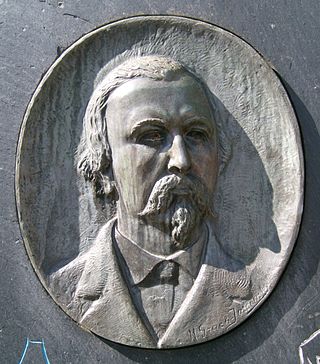 14
Edmond de la Fontaine, better known by his pen name of Dicks, was a Luxembourgish jurist, poet, and lyricist, known for his work in the Luxembourgish language. He is considered the national poet of...
14
Edmond de la Fontaine, better known by his pen name of Dicks, was a Luxembourgish jurist, poet, and lyricist, known for his work in the Luxembourgish language. He is considered the national poet of...
Charlotte, Grand Duchess of Luxembourg
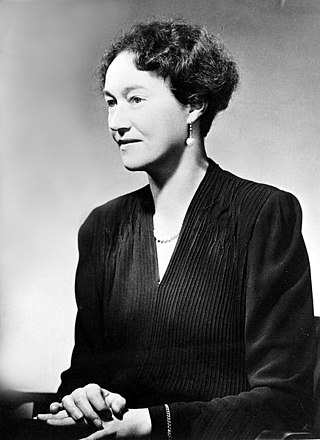 13
Charlotte was Grand Duchess of Luxembourg from 14 January 1919 until her abdication on 12 November 1964.
13
Charlotte was Grand Duchess of Luxembourg from 14 January 1919 until her abdication on 12 November 1964.
John F. Kennedy
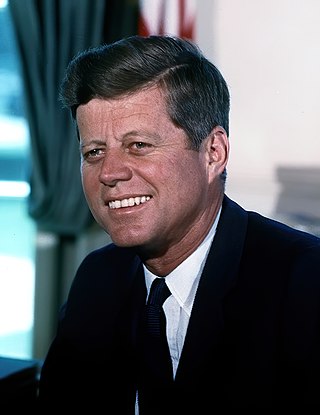 11
John Fitzgerald Kennedy, often referred to as JFK, was an American politician who served as the 35th president of the United States from 1961 until his assassination in 1963. He was the youngest...
11
John Fitzgerald Kennedy, often referred to as JFK, was an American politician who served as the 35th president of the United States from 1961 until his assassination in 1963. He was the youngest...
Michel Lentz
 11
Michel Lentz was a Luxembourg poet. He is best known for having written Ons Heemecht, the national anthem of Luxembourg.
11
Michel Lentz was a Luxembourg poet. He is best known for having written Ons Heemecht, the national anthem of Luxembourg.
Henri, Grand Duke of Luxembourg
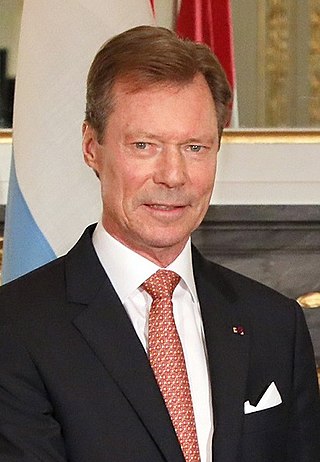 10
Henri is Grand Duke of Luxembourg. He has reigned since 7 October 2000. Henri is the eldest son of Grand Duke Jean and Princess Joséphine-Charlotte of Belgium. He is a first cousin of King Philippe...
10
Henri is Grand Duke of Luxembourg. He has reigned since 7 October 2000. Henri is the eldest son of Grand Duke Jean and Princess Joséphine-Charlotte of Belgium. He is a first cousin of King Philippe...
George S. Patton
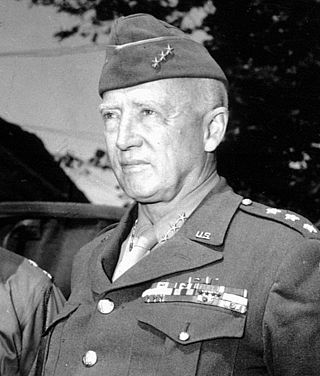 8
George Smith Patton Jr. was a general in the United States Army who commanded the Seventh Army in the Mediterranean Theater of World War II, and the Third Army in France and Germany after the Allied...
8
George Smith Patton Jr. was a general in the United States Army who commanded the Seventh Army in the Mediterranean Theater of World War II, and the Third Army in France and Germany after the Allied...
Pierre Krier
 8
Pierre Krier was a Luxembourgish politician.
8
Pierre Krier was a Luxembourgish politician.
Josy Barthel
 8
Joseph ("Josy") Barthel was a Luxembourgish athlete. He was the surprise winner of the Men's 1500 metres at the 1952 Summer Olympics, and the only athlete representing Luxembourg to have won a gold...
8
Joseph ("Josy") Barthel was a Luxembourgish athlete. He was the surprise winner of the Men's 1500 metres at the 1952 Summer Olympics, and the only athlete representing Luxembourg to have won a gold...
Batty Weber
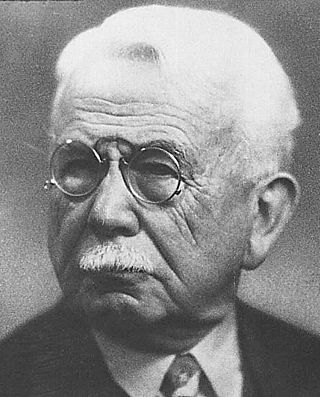 8
Batty (Jean-Baptiste) Weber (1860–1940) is considered to have been one of Luxembourg's most influential journalists and authors, contributing much to the development of the country's national...
8
Batty (Jean-Baptiste) Weber (1860–1940) is considered to have been one of Luxembourg's most influential journalists and authors, contributing much to the development of the country's national...
Hubertus
 8
Hubertus or Hubert was a Christian saint who became the first bishop of Liège in 708 A.D. He is the patron saint of hunters, mathematicians, opticians and metalworkers. Known as the "Apostle of the...
8
Hubertus or Hubert was a Christian saint who became the first bishop of Liège in 708 A.D. He is the patron saint of hunters, mathematicians, opticians and metalworkers. Known as the "Apostle of the...
Pierre Dupong
 7
Pierre Dupong was a Luxembourgish politician and statesman. He was the 16th prime minister of Luxembourg, serving for sixteen years, from 5 November 1937 until his death, on 23 December 1953, and was...
7
Pierre Dupong was a Luxembourgish politician and statesman. He was the 16th prime minister of Luxembourg, serving for sixteen years, from 5 November 1937 until his death, on 23 December 1953, and was...
Saint Nicholas
 7
Saint Nicholas of Myra, also known as Nicholas of Bari, was an early Christian bishop of Greek descent from the maritime city of Patara in Anatolia during the time of the Roman Empire. Because of the...
7
Saint Nicholas of Myra, also known as Nicholas of Bari, was an early Christian bishop of Greek descent from the maritime city of Patara in Anatolia during the time of the Roman Empire. Because of the...
Aloyse Kayser
 6
Den Aloyse Kayser, gebuer den 29. Januar 1874 zu Rolleng bei Miersch, a gestuerwen de 6. Mäerz 1926 an der Stad Lëtzebuerg, war e lëtzebuergesche Politiker a Gewerkschaftler (FNCTTFEL).
6
Den Aloyse Kayser, gebuer den 29. Januar 1874 zu Rolleng bei Miersch, a gestuerwen de 6. Mäerz 1926 an der Stad Lëtzebuerg, war e lëtzebuergesche Politiker a Gewerkschaftler (FNCTTFEL).
Marie-Adélaïde, Grand Duchess of Luxembourg
 6
Marie-Adélaïde, was Grand Duchess of Luxembourg from 1912 until her abdication in 1919. She was the first Grand Duchess regnant of Luxembourg, its first female monarch since Duchess Maria Theresa and...
6
Marie-Adélaïde, was Grand Duchess of Luxembourg from 1912 until her abdication in 1919. She was the first Grand Duchess regnant of Luxembourg, its first female monarch since Duchess Maria Theresa and...
Princess Joséphine-Charlotte of Belgium
 6
Princess Joséphine-Charlotte of Belgium was the Grand Duchess of Luxembourg as the wife of Grand Duke Jean. She was the first child of King Leopold III of Belgium, and sister of the late King...
6
Princess Joséphine-Charlotte of Belgium was the Grand Duchess of Luxembourg as the wife of Grand Duke Jean. She was the first child of King Leopold III of Belgium, and sister of the late King...
Michel Welter
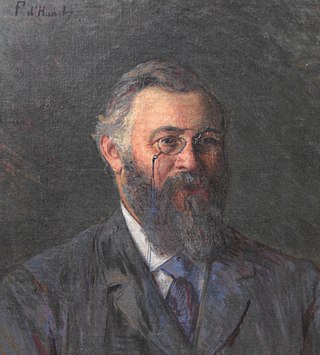 6
Dr. Michel Welter was a Luxembourgish politician, and former leader of the Socialist Party. A member of Luxembourg's Chamber of Deputies, he served as the Director-General for Agriculture, Commerce,...
6
Dr. Michel Welter was a Luxembourgish politician, and former leader of the Socialist Party. A member of Luxembourg's Chamber of Deputies, he served as the Director-General for Agriculture, Commerce,...
Jean, Grand Duke of Luxembourg
 6
Jean was the Grand Duke of Luxembourg from 1964 until his abdication in 2000. He was the first Grand Duke of Luxembourg of French agnatic descent.
6
Jean was the Grand Duke of Luxembourg from 1964 until his abdication in 2000. He was the first Grand Duke of Luxembourg of French agnatic descent.
Robert Schuman
 6
Jean-Baptiste Nicolas Robert Schuman was a Luxembourg-born French statesman. Schuman was a Christian democratic political thinker and activist. Twice Prime Minister of France, a reformist Minister of...
6
Jean-Baptiste Nicolas Robert Schuman was a Luxembourg-born French statesman. Schuman was a Christian democratic political thinker and activist. Twice Prime Minister of France, a reformist Minister of...
William IV, Grand Duke of Luxembourg
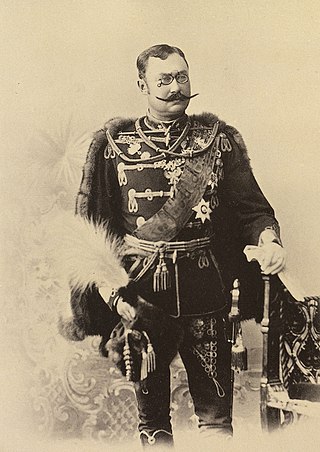 5
William IV was Grand Duke of Luxembourg from 17 November 1905 until his death in 1912. He succeeded his father, Adolphe. Like his father, William mostly stayed out of politics despite being vested...
5
William IV was Grand Duke of Luxembourg from 17 November 1905 until his death in 1912. He succeeded his father, Adolphe. Like his father, William mostly stayed out of politics despite being vested...
Émile Mayrisch
 5
Jacob Émile Albert Mayrisch was a Luxembourgian industrialist and businessman. He served as president of Arbed.
5
Jacob Émile Albert Mayrisch was a Luxembourgian industrialist and businessman. He served as president of Arbed.
Henry Dunant
 5
Henry Dunant, also known as Henri Dunant, was a Swiss humanitarian, businessman, social activist, and co-founder of the Red Cross. His humanitarian efforts won him the first Nobel Peace Prize in 1901.
5
Henry Dunant, also known as Henri Dunant, was a Swiss humanitarian, businessman, social activist, and co-founder of the Red Cross. His humanitarian efforts won him the first Nobel Peace Prize in 1901.
Caspar Mathias Spoo
 5
Caspar Mathias Spoo was a Luxembourgish industrialist and politician.
5
Caspar Mathias Spoo was a Luxembourgish industrialist and politician.
Prince Jean of Luxembourg
 5
Prince Jean of Luxembourg, the second son of Jean, Grand Duke of Luxembourg and Princess Joséphine-Charlotte of Belgium. He is the twin brother of Princess Margaretha. He frequently goes by the name...
5
Prince Jean of Luxembourg, the second son of Jean, Grand Duke of Luxembourg and Princess Joséphine-Charlotte of Belgium. He is the twin brother of Princess Margaretha. He frequently goes by the name...
Paul Eyschen
 5
Paul Eyschen was a Luxembourgish politician, statesman, lawyer, and diplomat. He was the eighth prime minister of Luxembourg, serving for twenty-seven years, from 22 September 1888 until his death,...
5
Paul Eyschen was a Luxembourgish politician, statesman, lawyer, and diplomat. He was the eighth prime minister of Luxembourg, serving for twenty-seven years, from 22 September 1888 until his death,...
Jean Antoine Zinnen
 5
Jean Antoine Zinnen was a Luxembourgish composer, best known for the Luxembourgish national anthem, Ons Heemecht.
5
Jean Antoine Zinnen was a Luxembourgish composer, best known for the Luxembourgish national anthem, Ons Heemecht.
Victor Hugo
 4
Victor-Marie Hugo, vicomte Hugo, sometimes nicknamed the Ocean Man, was a French Romantic writer and politician. During a literary career that spanned more than sixty years, he wrote in a variety of...
4
Victor-Marie Hugo, vicomte Hugo, sometimes nicknamed the Ocean Man, was a French Romantic writer and politician. During a literary career that spanned more than sixty years, he wrote in a variety of...
Louis Pasteur
 4
Louis Pasteur was a French chemist, pharmacist, and microbiologist renowned for his discoveries of the principles of vaccination, microbial fermentation, and pasteurization, the last of which was...
4
Louis Pasteur was a French chemist, pharmacist, and microbiologist renowned for his discoveries of the principles of vaccination, microbial fermentation, and pasteurization, the last of which was...
Gabriel Lippmann
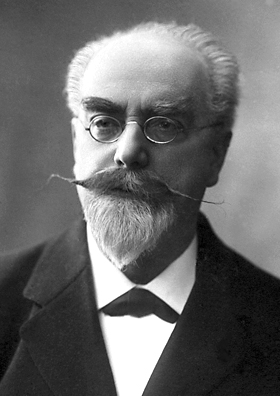 4
Jonas Ferdinand Gabriel Lippmann was a Franco-Luxembourgish physicist and inventor, and Nobel laureate in physics for his method of reproducing colours photographically based on the phenomenon of...
4
Jonas Ferdinand Gabriel Lippmann was a Franco-Luxembourgish physicist and inventor, and Nobel laureate in physics for his method of reproducing colours photographically based on the phenomenon of...
Nicolas Biever
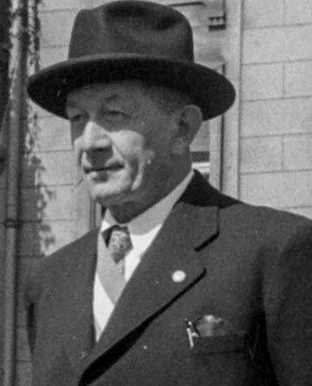 4
Nicolas "Nic" Biever was a Luxembourgian politician.
4
Nicolas "Nic" Biever was a Luxembourgian politician.
Auguste Liesch
 4
Jean-Baptiste Auguste Liesch was a Luxembourgish liberal politician, writer, and civil servant.
4
Jean-Baptiste Auguste Liesch was a Luxembourgish liberal politician, writer, and civil servant.
Henry VII of England
 4
Henry VII was King of England and Lord of Ireland from his seizure of the crown on 22 August 1485 until his death in 1509. He was the first monarch of the House of Tudor.
4
Henry VII was King of England and Lord of Ireland from his seizure of the crown on 22 August 1485 until his death in 1509. He was the first monarch of the House of Tudor.
Pierre Frieden
 4
Pierre Frieden was a Luxembourgish politician and writer. He was the 18th prime minister of Luxembourg, serving for eleven months, from 29 March 1958 until his death, on 23 February 1959. He also...
4
Pierre Frieden was a Luxembourgish politician and writer. He was the 18th prime minister of Luxembourg, serving for eleven months, from 29 March 1958 until his death, on 23 February 1959. He also...
Edward Steichen
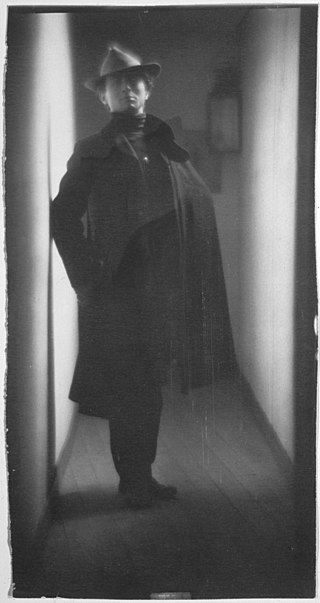 3
Edward Jean Steichen was a Luxembourgish American photographer, painter, and curator, renowned as one of the most prolific and influential figures in the history of photography.
3
Edward Jean Steichen was a Luxembourgish American photographer, painter, and curator, renowned as one of the most prolific and influential figures in the history of photography.
Jean Jaurès
 3
Auguste Marie Joseph Jean Léon Jaurès, commonly referred to as Jean Jaurès, was a French Socialist leader. Initially a Moderate Republican, he later became one of the first social democrats and the...
3
Auguste Marie Joseph Jean Léon Jaurès, commonly referred to as Jean Jaurès, was a French Socialist leader. Initially a Moderate Republican, he later became one of the first social democrats and the...
Jean Wolter
 3
Jean Wolter was a Luxembourgish journalist and politician.
3
Jean Wolter was a Luxembourgish journalist and politician.
Léon Kauffman
 3
Léon Kauffman was a Luxembourgish politician. He was the 12th prime minister of Luxembourg, serving for one year, from 18 June 1917 until 28 September 1918.
3
Léon Kauffman was a Luxembourgish politician. He was the 12th prime minister of Luxembourg, serving for one year, from 18 June 1917 until 28 September 1918.
Emmanuel Servais
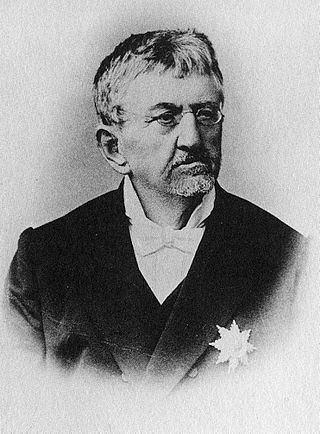 3
Lambert Joseph Emmanuel Servais was a Luxembourgish politician. He held numerous offices of national importance, foremost amongst which was in serving as the fifth prime minister of Luxembourg, for...
3
Lambert Joseph Emmanuel Servais was a Luxembourgish politician. He held numerous offices of national importance, foremost amongst which was in serving as the fifth prime minister of Luxembourg, for...
John of Bohemia
 3
John the Blind or John of Luxembourg, was the Count of Luxembourg from 1313 and King of Bohemia from 1310 and titular King of Poland. He is well known for having died while fighting in the Battle of...
3
John the Blind or John of Luxembourg, was the Count of Luxembourg from 1313 and King of Bohemia from 1310 and titular King of Poland. He is well known for having died while fighting in the Battle of...
Saint Joseph
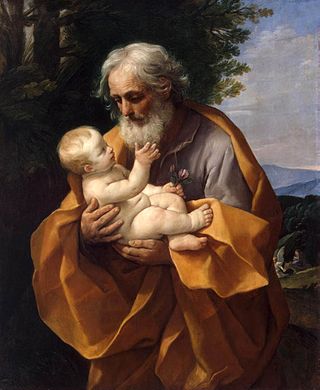 3
Joseph was a 1st-century Jewish man of Nazareth who, according to the canonical Gospels, was married to Mary, the mother of Jesus, and was the legal father of Jesus.
3
Joseph was a 1st-century Jewish man of Nazareth who, according to the canonical Gospels, was married to Mary, the mother of Jesus, and was the legal father of Jesus.
Nelson Mandela
 3
Nelson Rolihlahla Mandela was a South African anti-apartheid activist, politician, and statesman who served as the first president of South Africa from 1994 to 1999. He was the country's first black...
3
Nelson Rolihlahla Mandela was a South African anti-apartheid activist, politician, and statesman who served as the first president of South Africa from 1994 to 1999. He was the country's first black...
Nik Welter
 3
Nikolaus “Nik” Welter was a Luxembourgish writer, playwright, poet, professor, literary critic, and statesman. He wrote predominantly in German. He also served as a Minister for Education in the...
3
Nikolaus “Nik” Welter was a Luxembourgish writer, playwright, poet, professor, literary critic, and statesman. He wrote predominantly in German. He also served as a Minister for Education in the...
Raoul Follereau
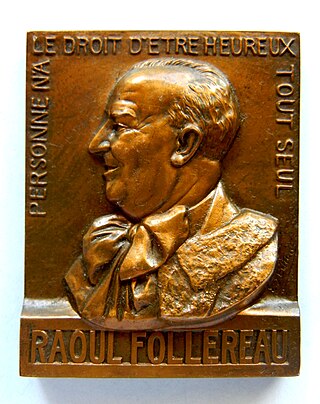 3
Raoul Follereau, né le 17 août 1903 à Nevers et mort le 6 décembre 1977 dans le 16e arrondissement de Paris, est un écrivain et journaliste français.
3
Raoul Follereau, né le 17 août 1903 à Nevers et mort le 6 décembre 1977 dans le 16e arrondissement de Paris, est un écrivain et journaliste français.
Thomas Edison
 3
Thomas Alva Edison was an American inventor and businessman. He developed many devices in fields such as electric power generation, mass communication, sound recording, and motion pictures. These...
3
Thomas Alva Edison was an American inventor and businessman. He developed many devices in fields such as electric power generation, mass communication, sound recording, and motion pictures. These...
Lou Hemmer
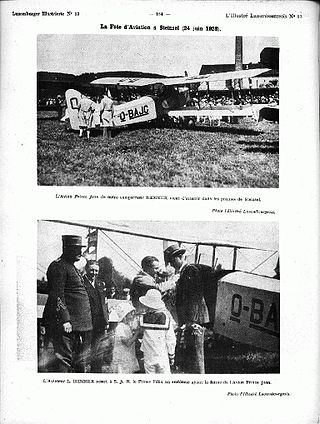 3
De Louis ("Lou") Hemmer, gebuer den 1. Dezember 1904 an der Stad Lëtzebuerg, och do gestuerwen den 23. Mee 1987, war e lëtzebuergesche Pilot a Pionéier vun der lëtzebuergescher Aviatioun. Säi ganzt...
3
De Louis ("Lou") Hemmer, gebuer den 1. Dezember 1904 an der Stad Lëtzebuerg, och do gestuerwen den 23. Mee 1987, war e lëtzebuergesche Pilot a Pionéier vun der lëtzebuergescher Aviatioun. Säi ganzt...
Saint Barbara
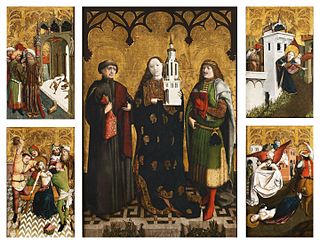 3
Saint Barbara, known in the Eastern Orthodox Church as the Great Martyr Barbara, was an early Christian Greek saint and martyr.
3
Saint Barbara, known in the Eastern Orthodox Church as the Great Martyr Barbara, was an early Christian Greek saint and martyr.
Gaston Thorn
 3
Gaston Egmond Thorn was a Luxembourgish politician who served in a number of high-profile positions, both domestically and internationally. Amongst the posts that he held were the 20th prime minister...
3
Gaston Egmond Thorn was a Luxembourgish politician who served in a number of high-profile positions, both domestically and internationally. Amongst the posts that he held were the 20th prime minister...
Charles de Gaulle
 3
Charles André Joseph Marie de Gaulle was a French army officer and statesman who led the Free French Forces against Nazi Germany in World War II and chaired the Provisional Government of the French...
3
Charles André Joseph Marie de Gaulle was a French army officer and statesman who led the Free French Forces against Nazi Germany in World War II and chaired the Provisional Government of the French...
Marie-Thérèse, Duchess of Angoulême
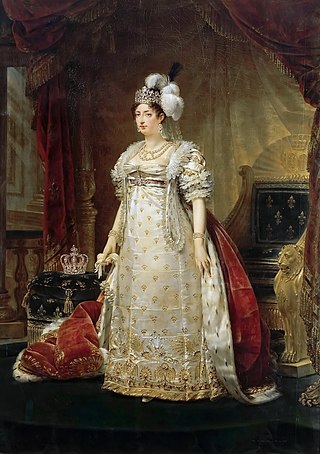 3
Marie-Thérèse Charlotte was the eldest child of King Louis XVI and Queen Marie Antoinette of France, and their only child to reach adulthood. In 1799 she married her cousin Louis Antoine, Duke of...
3
Marie-Thérèse Charlotte was the eldest child of King Louis XVI and Queen Marie Antoinette of France, and their only child to reach adulthood. In 1799 she married her cousin Louis Antoine, Duke of...
Michel Lentz
 3
De Michel Lentz, gebuer den 21. Mee 1820 an der Stad Lëtzebuerg, an do gestuerwen de 7. September 1893, war e Lëtzebuerger Schrëftsteller, deen als Nationaldichter bezeechent gëtt. Hien huet virun...
3
De Michel Lentz, gebuer den 21. Mee 1820 an der Stad Lëtzebuerg, an do gestuerwen de 7. September 1893, war e Lëtzebuerger Schrëftsteller, deen als Nationaldichter bezeechent gëtt. Hien huet virun...
Henry Bessemer
 3
Sir Henry Bessemer was an English inventor, whose steel-making process would become the most important technique for making steel in the nineteenth century for almost one hundred years. He also...
3
Sir Henry Bessemer was an English inventor, whose steel-making process would become the most important technique for making steel in the nineteenth century for almost one hundred years. He also...
Lucien Wercollier
 3
Lucien Wercollier was a sculptor from Luxembourg.
3
Lucien Wercollier was a sculptor from Luxembourg.
André Duchscher
Émile Metz
 2
Émile Metz was a Luxembourgish politician, industrialist and engineer. He was the eldest son of Norbert Metz.
2
Émile Metz was a Luxembourgish politician, industrialist and engineer. He was the eldest son of Norbert Metz.
François-Xavier Wurth-Paquet
 2
François-Xavier Wurth-Paquet was a Luxembourgian politician, jurist, and archaeologist.
2
François-Xavier Wurth-Paquet was a Luxembourgian politician, jurist, and archaeologist.
Alphonse Munchen
 2
Jean-Pierre Alphonse Munchen was a Luxembourgish engineer and politician. He served as the Mayor of Luxembourg City between 24 July 1904 and 14 February 1915.
2
Jean-Pierre Alphonse Munchen was a Luxembourgish engineer and politician. He served as the Mayor of Luxembourg City between 24 July 1904 and 14 February 1915.
William Justin Kroll
 2
William Justin Kroll was a Luxembourgish metallurgist. He is best known for inventing the Kroll process in 1940, which is used commercially to extract metallic titanium from ore.
2
William Justin Kroll was a Luxembourgish metallurgist. He is best known for inventing the Kroll process in 1940, which is used commercially to extract metallic titanium from ore.
Dominique Lang
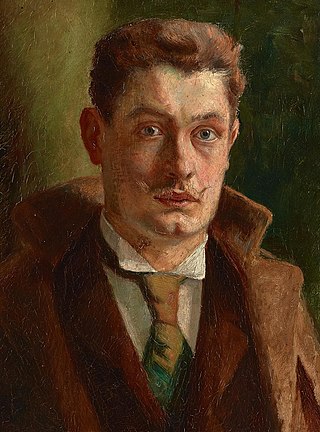 2
Dominique Lang (1874–1919) is considered to be Luxembourg's most important Impressionist painter. He painted both portraits and landscapes although he was employed as a high-school teacher.
2
Dominique Lang (1874–1919) is considered to be Luxembourg's most important Impressionist painter. He painted both portraits and landscapes although he was employed as a high-school teacher.
Xavier Brasseur
 2
François Xavier Brasseur was a Luxembourgian politician and jurist.
2
François Xavier Brasseur was a Luxembourgian politician and jurist.
Jean Origer
 2
Jean Origer was a Luxembourgish cleric and director of the newspaper Luxemburger Wort. Jean Origer was born in Esch-Alzette and later became a member of the Chamber of Deputies of Luxembourg. During...
2
Jean Origer was a Luxembourgish cleric and director of the newspaper Luxemburger Wort. Jean Origer was born in Esch-Alzette and later became a member of the Chamber of Deputies of Luxembourg. During...
Michael (archangel)
 2
Michael, also called Saint Michael the Archangel, Archangel Michael and Saint Michael the Taxiarch is an archangel in Judaism, Christianity, Islam, and the Baha'i faith. The earliest surviving...
2
Michael, also called Saint Michael the Archangel, Archangel Michael and Saint Michael the Taxiarch is an archangel in Judaism, Christianity, Islam, and the Baha'i faith. The earliest surviving...
Charly Gaul
 2
Charly Gaul was a Luxembourgish professional cyclist. He was a national cyclo-cross champion, an accomplished time triallist and superb climber. His ability earned him the nickname of Angel of the...
2
Charly Gaul was a Luxembourgish professional cyclist. He was a national cyclo-cross champion, an accomplished time triallist and superb climber. His ability earned him the nickname of Angel of the...
Franklin D. Roosevelt
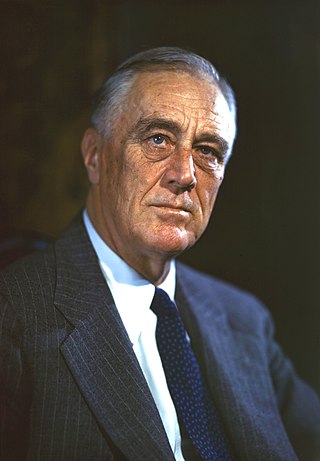 2
Franklin Delano Roosevelt, commonly known by his initials FDR, was an American statesman and politician who served as the 32nd president of the United States from 1933 until his death in 1945. He was...
2
Franklin Delano Roosevelt, commonly known by his initials FDR, was an American statesman and politician who served as the 32nd president of the United States from 1933 until his death in 1945. He was...
Johann Wolfgang von Goethe
 2
Johann Wolfgang von Goethe was a German polymath and writer, who is widely regarded as the greatest and most influential writer in the German language. His work has had a profound and wide-ranging...
2
Johann Wolfgang von Goethe was a German polymath and writer, who is widely regarded as the greatest and most influential writer in the German language. His work has had a profound and wide-ranging...
Saint Christopher
 2
Saint Christopher is venerated by several Christian denominations as a martyr killed in the reign of the 3rd-century Roman emperor Decius, or alternatively under the emperor Maximinus Daia. There...
2
Saint Christopher is venerated by several Christian denominations as a martyr killed in the reign of the 3rd-century Roman emperor Decius, or alternatively under the emperor Maximinus Daia. There...
Hubert Clément
 2
Hubert Clément was a Luxembourgish journalist and politician. He served as the Mayor of Esch-sur-Alzette, as a member of the Council of State, as a member of the Chamber of Deputies. He was a...
2
Hubert Clément was a Luxembourgish journalist and politician. He served as the Mayor of Esch-sur-Alzette, as a member of the Council of State, as a member of the Chamber of Deputies. He was a...
Mathias Koener
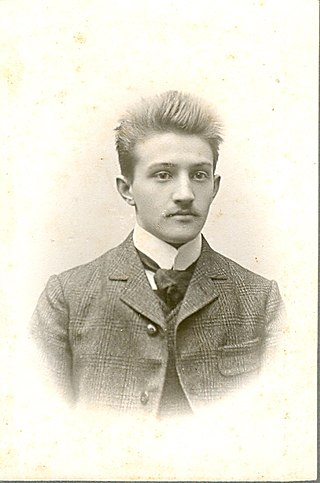 2
De Mathias Koener, gebuer de 15. November 1883 zu Waasserbëlleg, a gestuerwen den 8. Mäerz 1943 an der Stad, war Direkter vun Arbed-Schëffleng.
2
De Mathias Koener, gebuer de 15. November 1883 zu Waasserbëlleg, a gestuerwen den 8. Mäerz 1943 an der Stad, war Direkter vun Arbed-Schëffleng.
Winston Churchill
 2
Sir Winston Leonard Spencer Churchill was a British statesman, soldier, and writer who twice served as Prime Minister of the United Kingdom, from 1940 to 1945 during the Second World War, and again...
2
Sir Winston Leonard Spencer Churchill was a British statesman, soldier, and writer who twice served as Prime Minister of the United Kingdom, from 1940 to 1945 during the Second World War, and again...
Léon Weirich
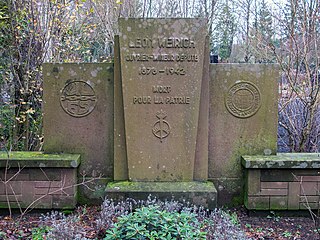 2
De Léon Weirich, gebuer den 20. Mäerz 1878 zu Weiler zum Tuer a gestuerwen den 31. Januar 1942 zu Dachau, war e lëtzebuergesche Biergaarbechter, Gewerkschaftler a Politiker.
2
De Léon Weirich, gebuer den 20. Mäerz 1878 zu Weiler zum Tuer a gestuerwen den 31. Januar 1942 zu Dachau, war e lëtzebuergesche Biergaarbechter, Gewerkschaftler a Politiker.
Zénon Bernard
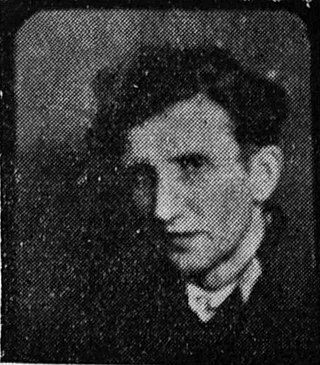 2
Johann Zénon Bernard was a Luxembourgian communist politician. He led the Communist Party of Luxembourg during its first two decades of existence, and was the first communist elected to the...
2
Johann Zénon Bernard was a Luxembourgian communist politician. He led the Communist Party of Luxembourg during its first two decades of existence, and was the first communist elected to the...
Norbert Metz
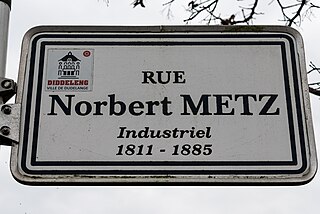 2
Jean-Joseph Norbert Metz was a Luxembourgish politician and engineer. With his two brothers, members of the powerful Metz family, Charles and Auguste, Metz defined political and economic life in...
2
Jean-Joseph Norbert Metz was a Luxembourgish politician and engineer. With his two brothers, members of the powerful Metz family, Charles and Auguste, Metz defined political and economic life in...
Marie Curie
 2
Maria Salomea Skłodowska-Curie, known simply as Marie Curie, was a Polish and naturalised-French physicist and chemist who conducted pioneering research on radioactivity. She was the first woman to...
2
Maria Salomea Skłodowska-Curie, known simply as Marie Curie, was a Polish and naturalised-French physicist and chemist who conducted pioneering research on radioactivity. She was the first woman to...
Alexander Fleming
 2
Sir Alexander Fleming was a Scottish physician and microbiologist, best known for discovering the world's first broadly effective antibiotic substance, which he named penicillin. His discovery in...
2
Sir Alexander Fleming was a Scottish physician and microbiologist, best known for discovering the world's first broadly effective antibiotic substance, which he named penicillin. His discovery in...
Marie-Paule Molitor-Peffer
 2
D'Marie-Paule Molitor-Peffer, gebuer de 7. Oktober 1929 an der Stad Lëtzebuerg a gestuerwen den 9. September 1999 bei Loriol, war eng lëtzebuergesch Fraendoktesch.
2
D'Marie-Paule Molitor-Peffer, gebuer de 7. Oktober 1929 an der Stad Lëtzebuerg a gestuerwen den 9. September 1999 bei Loriol, war eng lëtzebuergesch Fraendoktesch.
Saint Roch
 2
Roch, also called Rock in English, was a Majorcan Catholic confessor whose death is commemorated on 16 August and 9 September in Italy; he was especially invoked against the plague. He has the...
2
Roch, also called Rock in English, was a Majorcan Catholic confessor whose death is commemorated on 16 August and 9 September in Italy; he was especially invoked against the plague. He has the...
Sosthène Weis
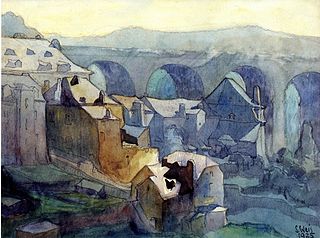 2
Sosthène Weis was a prolific Luxembourg artist who painted over 5,000 watercolors, mostly of Luxembourg and its surroundings. He also worked as an architect, designing some of Luxembourg's most...
2
Sosthène Weis was a prolific Luxembourg artist who painted over 5,000 watercolors, mostly of Luxembourg and its surroundings. He also worked as an architect, designing some of Luxembourg's most...
Willy Goergen
 2
De Guillaume ("Willy") Goergen, gebuer den 30. Abrëll 1867 zu Steesel, gestuerwen de 6. Juni 1942 an der Stad Lëtzebuerg, war e lëtzebuergesche Schrëftsteller.
2
De Guillaume ("Willy") Goergen, gebuer den 30. Abrëll 1867 zu Steesel, gestuerwen de 6. Juni 1942 an der Stad Lëtzebuerg, war e lëtzebuergesche Schrëftsteller.
Nicolas Adames
 2
Nicolas Adames was the first Bishop of Luxembourg.
2
Nicolas Adames was the first Bishop of Luxembourg.
Anne Beffort
 2
Anne Beffort was a Luxembourg educator, literary writer and biographer. She is remembered for her works on Victor Hugo and Alexandre Soumet and for her support of French culture in Luxembourg.
2
Anne Beffort was a Luxembourg educator, literary writer and biographer. She is remembered for her works on Victor Hugo and Alexandre Soumet and for her support of French culture in Luxembourg.
Albert Simon
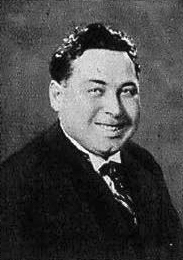 2
Albert Simon was a Luxembourgish painter. His work was part of the painting event in the art competition at the 1924 Summer Olympics.
2
Albert Simon was a Luxembourgish painter. His work was part of the painting event in the art competition at the 1924 Summer Olympics.
Ernest Feltgen
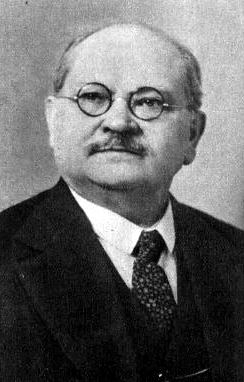 2
De Georges Ernest Feltgen, gebuer de 26. Mee 1867 zu Bierschbech a gestuerwen de 6. Mäerz 1950 an der Stad Lëtzebuerg, war e lëtzebuergeschen Dokter.
2
De Georges Ernest Feltgen, gebuer de 26. Mee 1867 zu Bierschbech a gestuerwen de 6. Mäerz 1950 an der Stad Lëtzebuerg, war e lëtzebuergeschen Dokter.
Albert Einstein
 2
Albert Einstein was a German-born theoretical physicist who is widely held to be one of the greatest and most influential scientists of all time. Best known for developing the theory of relativity,...
2
Albert Einstein was a German-born theoretical physicist who is widely held to be one of the greatest and most influential scientists of all time. Best known for developing the theory of relativity,...
Marcel Reuland
Dwight D. Eisenhower
 2
Dwight David Eisenhower, nicknamed Ike, was an American military officer and statesman who served as the 34th president of the United States from 1953 to 1961. During World War II, he was Supreme...
2
Dwight David Eisenhower, nicknamed Ike, was an American military officer and statesman who served as the 34th president of the United States from 1953 to 1961. During World War II, he was Supreme...
Nicholas Margue
 2
Nicolas Margue was a Luxembourgish professor and politician in the Christian Social People's Party.
2
Nicolas Margue was a Luxembourgish professor and politician in the Christian Social People's Party.
Michel Rasquin
 2
Michel Rasquin was a Luxembourgish journalist and socialist politician, and European Commissioner.
2
Michel Rasquin was a Luxembourgish journalist and socialist politician, and European Commissioner.
Marcel Noppeney
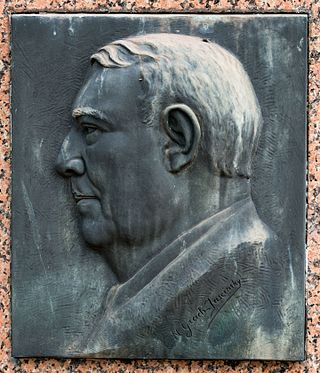 2
De Marcel Noppeney, gebuer de 24. Abrëll 1877 zu Lëtzebuerg, do gestuerwen de 5. Abrëll 1966, war e lëtzebuergesche Schrëftsteller an Editeur.
2
De Marcel Noppeney, gebuer de 24. Abrëll 1877 zu Lëtzebuerg, do gestuerwen de 5. Abrëll 1966, war e lëtzebuergesche Schrëftsteller an Editeur.
Jean-Pierre Erpelding
 2
De Jean-Pierre Erpelding, och: Johann Peter Erpelding oder J.P. Erpelding, gebuer den 8. Juli 1884 zu Bierg, a gestuerwen den 13. November 1977 an der Stad, war e lëtzebuergesche Schrëftsteller.
2
De Jean-Pierre Erpelding, och: Johann Peter Erpelding oder J.P. Erpelding, gebuer den 8. Juli 1884 zu Bierg, a gestuerwen den 13. November 1977 an der Stad, war e lëtzebuergesche Schrëftsteller.
Napoleon
 2
Napoleon Bonaparte, later known by his regnal name Napoleon I, was a French emperor and military commander who rose to prominence during the French Revolution and led successful campaigns during the...
2
Napoleon Bonaparte, later known by his regnal name Napoleon I, was a French emperor and military commander who rose to prominence during the French Revolution and led successful campaigns during the...
Karl Marx
 2
Karl Marx was a German-born philosopher, economist, political theorist, historian, sociologist, journalist, and revolutionary socialist. His best-known works are the 1848 pamphlet The Communist...
2
Karl Marx was a German-born philosopher, economist, political theorist, historian, sociologist, journalist, and revolutionary socialist. His best-known works are the 1848 pamphlet The Communist...
Jean-Pierre Beckius
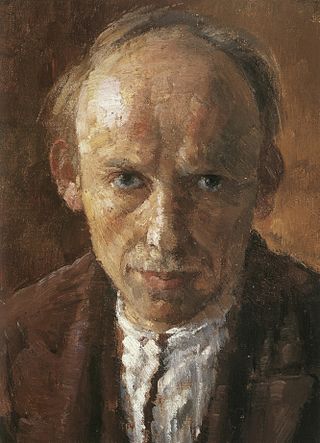 2
De Jean-Pierre Beckius, gebuer de 4. August 1899 zu Mäertert, an och do gestuerwen den 11. Dezember 1946, war e lëtzebuergesche Moler.
2
De Jean-Pierre Beckius, gebuer de 4. August 1899 zu Mäertert, an och do gestuerwen den 11. Dezember 1946, war e lëtzebuergesche Moler.
Irmina of Oeren
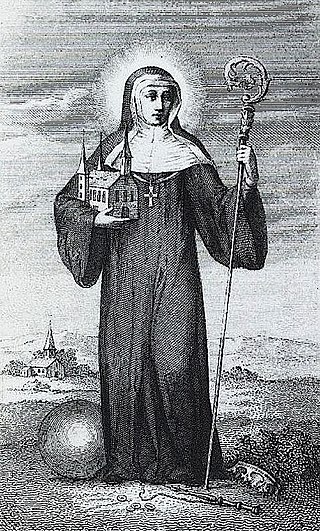 2
Irmina of Oeren was a saint, founder and abbess of a convent in Oeren, near Trier (Trèves), and co-founder of a convent in Echternach. Hagiographer Basil Watkins states that Irmina's 12th century...
2
Irmina of Oeren was a saint, founder and abbess of a convent in Oeren, near Trier (Trèves), and co-founder of a convent in Echternach. Hagiographer Basil Watkins states that Irmina's 12th century...
Paul Noesen
 2
De Paul Noesen, gebuer den 28. Juni 1891 zu Ierpeldeng bei Bous, a gestuerwen de 27. September 1960 an der Stad Lëtzebuerg, war e lëtzebuergesche Schoulmeeschter a Schrëftsteller.
De Paul Noesen,...
2
De Paul Noesen, gebuer den 28. Juni 1891 zu Ierpeldeng bei Bous, a gestuerwen de 27. September 1960 an der Stad Lëtzebuerg, war e lëtzebuergesche Schoulmeeschter a Schrëftsteller.
De Paul Noesen,...
Nico Klopp
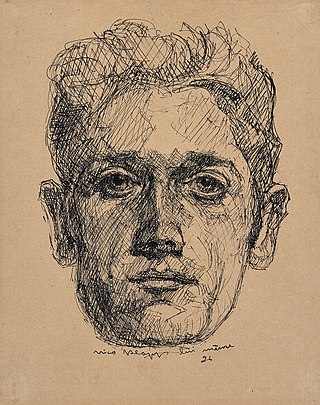 2
Nico Klopp (1894–1930) was a Luxembourg painter remembered above all for his post-impressionist paintings of scenes on the River Moselle where he lived.
2
Nico Klopp (1894–1930) was a Luxembourg painter remembered above all for his post-impressionist paintings of scenes on the River Moselle where he lived.
Pierre Federspiel
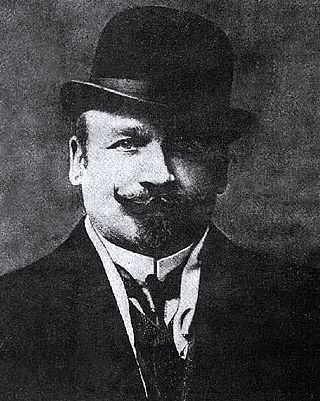 2
De Pierre Federspiel, gebuer den 20. September 1864 a Clausen, gestuerwen den 19. Abrëll 1924 an der Stad Lëtzebuerg, war e lëtzebuergesche Sculpteur a Medailleur.
2
De Pierre Federspiel, gebuer den 20. September 1864 a Clausen, gestuerwen den 19. Abrëll 1924 an der Stad Lëtzebuerg, war e lëtzebuergesche Sculpteur a Medailleur.
Fernand Gravey
 2
Fernand Gravey, also known as Fernand Gravet in the United States, was a Belgian-born French actor.
2
Fernand Gravey, also known as Fernand Gravet in the United States, was a Belgian-born French actor.
Aline Mayrisch de Saint-Hubert
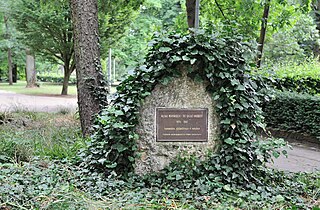 2
Aline Mayrisch de Saint-Hubert née de Saint-Hubert was a Luxembourg women's rights campaigner, socialite, philanthropist. Mayrisch established many non-governmental organisations and was President...
2
Aline Mayrisch de Saint-Hubert née de Saint-Hubert was a Luxembourg women's rights campaigner, socialite, philanthropist. Mayrisch established many non-governmental organisations and was President...
Théodore de Wacquant
 2
Den Théodore Willibrord de Wacquant, gebuer den 22. Juli 1815 zu Féiz a gestuerwen de 14. Dezember 1896 zu Lëtzebuerg, war e lëtzebuergeschen Deputéierten an Dokter zu Féiz.
2
Den Théodore Willibrord de Wacquant, gebuer den 22. Juli 1815 zu Féiz a gestuerwen de 14. Dezember 1896 zu Lëtzebuerg, war e lëtzebuergeschen Deputéierten an Dokter zu Féiz.
Louis Braille
 2
Louis Braille was a French educator and the inventor of a reading and writing system named after him, braille, intended for use by visually impaired people. His system is used worldwide and remains...
2
Louis Braille was a French educator and the inventor of a reading and writing system named after him, braille, intended for use by visually impaired people. His system is used worldwide and remains...
Albert Schweitzer
 2
Ludwig Philipp Albert Schweitzer was an Alsatian polymath. He was a theologian, organist, musicologist, writer, humanitarian, philosopher, and physician. A Lutheran minister, Schweitzer challenged...
2
Ludwig Philipp Albert Schweitzer was an Alsatian polymath. He was a theologian, organist, musicologist, writer, humanitarian, philosopher, and physician. A Lutheran minister, Schweitzer challenged...